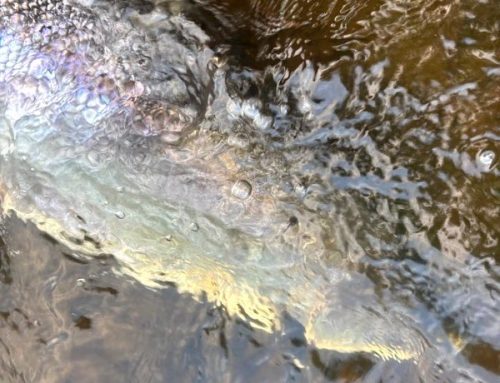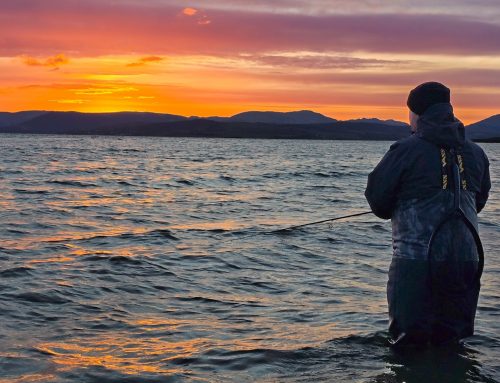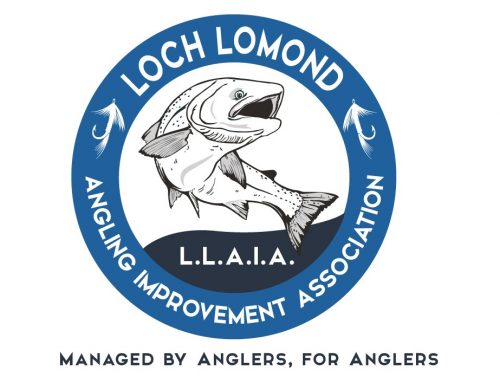Storm Damage at Carradale North Salmon Farm – what happened and what steps are required for the Lomond Catchment?
Over the last week your Committee has been in regular contact with Fishery Management Scotland (FMS) and with their assistance and advice we have been coordinating a consistent approach on the stance and actions to be taken not only concerning the Lomond catchment area but also with our adjoining fisheries sharing the Firth of Clyde. This has required coordination with Ayrshire, Argyle, Clyde Fishery Trusts including our own Loch Lomond Fishery Trust (LLFT).
What we know to have happened at this time is:
- On August 20, 2020, Mowi’s salmon farm at Carradale North shifted position after its seabed anchors became dislodged during Storm Ellen
- The farm consisted of 10 circular net pens containing a total of 550,000 salmon of approximately 4.2kgs in weight
- The cage group was stabilised during the storm and have now been returned to their original position and secured.
- 6 of the pens are fully intact, having been inspected by ROVs and divers
- 4 pens were damaged, two of which experienced torn netting. Therefore, as anticipated in our earlier news item, an escape of farmed fish is now confirmed
- Mowi have now reported that 48,834 farmed fish have escaped.
All stakeholders have been working to put in place an appropriate monitoring and mitigation plan in an attempt to minimise the number of farmed fish entering the rivers draining into the Firth of Clyde.
At this time it is unknown if farmed fish that were lost will actually arrive in our (Lomond) waters, it could be that we hopefully will not see any.
However, if any member or angler fishing our waters should catch what appears to be a Salmon from a farm origin the following action must be taken. We would highlight that all of the fish escaped were approx. 4.2Kg in weight (9.25Lbs) so fish far heavier or lighter in weight will unlikely be of farmed origin.
If the fish does appears to be of farmed origin of the weight range indicated above it should be immediately and humanely dispatched.
Part of the collective response to the potential appearance of adult fish in the Lomond catchment is to collect scales from the fish and have them examined. The growth patterns on farmed salmon scales are easily distinguished from those of wild fish. Collecting scales gives us one index of the occurrence of the escapees in fresh water, and will confirm that our catchment has been potentially adversely impacted.
To that end we are requesting every angler to take scale samples for all farm salmon caught, the method for scale sampling can be found here:
https://asfbuk.sharepoint.com/:i:/g/ERVyukZbaqpDvEz-S1o-a3MBmn5Ct6Dhwo1bFe9sCM3xQQ
Scales should be stored in paper packaging (e.g. wrapped in kitchen roll or in a paper envelope). It is important that scales are not stored in plastic nor dried on a direct heat source.
The L.L.A.I.A are awaiting an delivery of scale sample envelopes and we will distribute these to bailiffs, VOLDAC and also to Derek Hughes the River Leven Rep. So as soon as a farm fish is caught please get immediately in touch with ourselves or the LLFT and we can arrange collection of the scale samples plus a photograph where at all possible.
In addition to the scale samples the following online form must be completed, again if you need assistance with this then please contact the L.L.A.I.A or LLFT.
Link to the form is here:
https://app.smartsheet.com/b/form/b432577f816b400cbe8902bd3b799200
The L.L.A.I.A and LLFT will coordinate collection of all the scale envelopes for forwarding on for analysis.
All on the L.L.A.I.A Committee hope that this is a matter that we will not have to deal with as the genetic strains of our wild fish are critical to preserve, especially those in the Endrick.
But if we all play our part correctly should we encounter these farm fish then please follow the information above.
We will keep everybody updated as and when more information is known.






